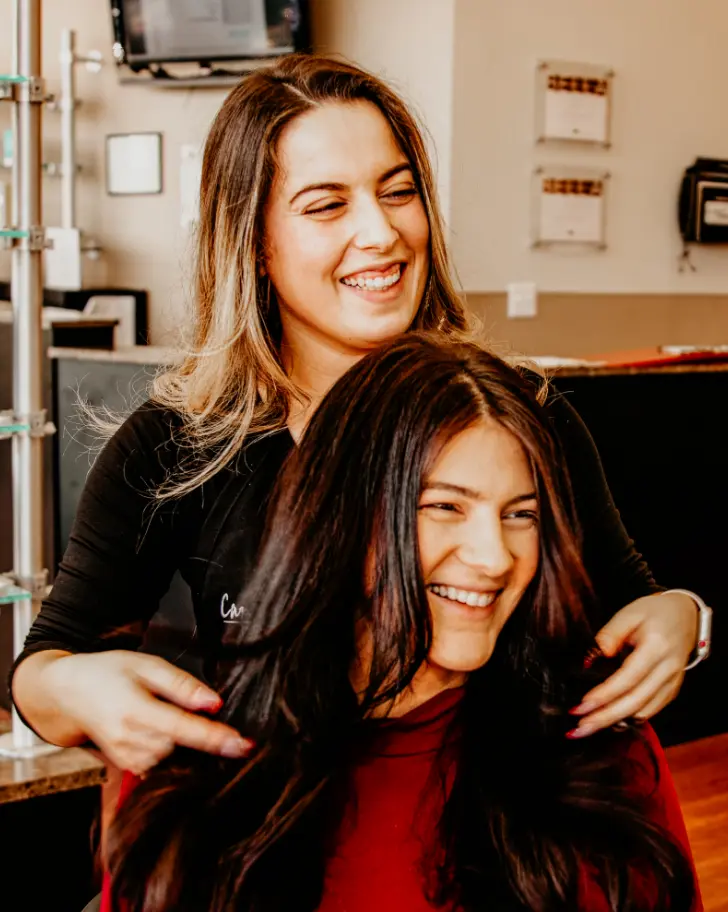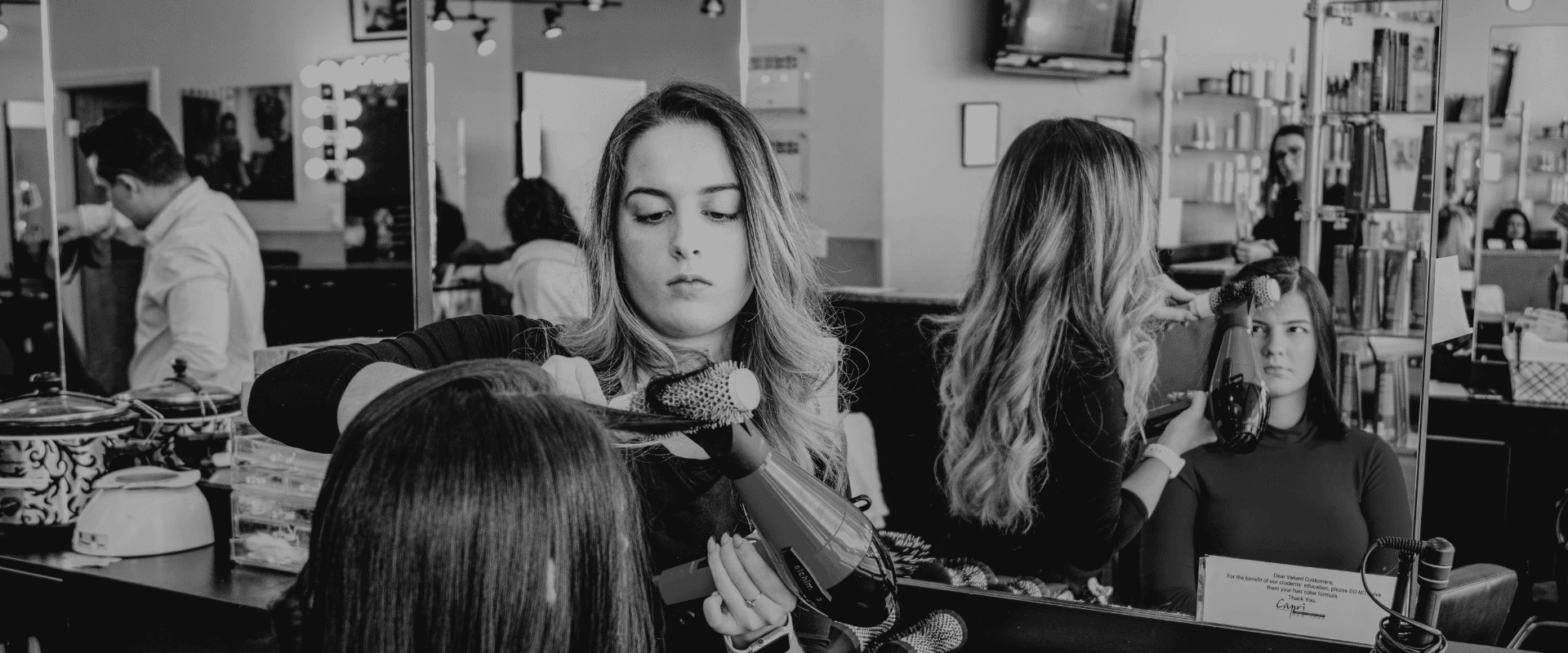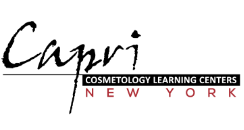
& Cosmetology
This course is designed to Teach and develop the skills necessary to attain proficiency in the many aspects of cosmetology. students will develop an understanding of the design principles needed to achieve a unified goal of not only passing the state board exams, but also ensure they are thoroughly prepared to obtain and retain successful employment.
Our Hairdressing & Cosmetology program includes education in:
-Design Elements and Principles
-Scalp and Hair Care
-Haircutting and Hairstyling
-Straightening Treatments
-Permanent Wave
-Hair Coloring
-Long Hair Design
-Ethnic Hair and Braiding
-Extensions and Wigs
-Men's Haircutting
-Nail Technology
-Skin Care and Make-Up
-Waxing
-Career Skills
-Salon Management
-State Board Preparation
-Bacteriology and Chemistry
-Anatomy and Physiology
If you’re interested in beginning your journey into the world of beauty, Capri Cosmetology Learning Centers New York can help!
REQUEST MORE Info
Interest in one of our programs? Complete the form and the Capri Admissions Team will contact you about choosing the best program choice for your career!

Do What you Love!
Available Schedules
FULL-TIME | 7.5 Months
Mon – Fri, 9:00 AM – 4:30 PM
PART-TIME | 15 Months
Mon – Thurs, 6:00 PM – 10:00 PM
Tuition Fees
Tuition $15,000
Equipment $2,395
Registration $100
TOTAL $17, 495
FINANCIAL AID IS AVAILABLE
For those who qualify and who are accepted.
Transfer Students Welcome
Looking to transfer? Learn more about your program transfer options.
FINANCIAL AID
Financial aid is available for those who qualify. For more information about our graduation rates, the median debt of students who completed the program, and other important information, please see Net Price Calculator.
INTERNATIONAL STUDENTS
Capri welcomes International students seeking to pursue their passion. Our inclusive curriculum provides a supportive environment for students from around the globe to learn and excel in the art of cosmetology.

